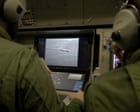China andRussiaare stepping up sabotage operations targeting undersea cables and the UK is unprepared to meet the mounting threat, according to new analysis.
A report by theChinaStrategic Risks Institute (CSRI) analysed 12 incidents in which national authorities had investigated alleged undersea cable sabotage between January 2021 and April 2025. Of the 10 cases in which a suspect vessel was identified, eight were directly linked to China or Russia through flag-state registration or company ownership.
The involvement of “shadow fleet” commercial vessels in these incidents is consistent with China and Russia’s broader “grey zone” strategy – a space between war and peace – which aims to coerce adversaries while minimising opportunities for response, the report claims.
The patterns of activity – such as the involvement of Chinese vessels in suspicious incidents in the Baltic Sea, and Russian vessels near Taiwan – suggest possible coordination between Moscow and Beijing on undersea cable attacks, it says.
It is estimated that up to 99% of intercontinental data transmission takes place through submarine cable systems, playing a vital role in civilian and defence infrastructure. Without undersea cables, much of the economy – from international banking and cloud computing to virtual communications and global logistics – would cease to function.
The UK acts as a key hub in Euro-Atlantic cable infrastructure and is likely to become a frequent target for future sabotage operations.
But a UK government submission to parliament’s joint committee on the national security strategy has admitted that it has limited capabilities to monitor commercial maritime traffic around undersea cables. The joint committee is mounting an investigation into the threat posed to the underseas cables and the possibility of more secure alternatives.
The Department for Science, Innovation and Technology submission to the committee noted that “the UK has limited capabilities for monitoring general maritime and white [commercial] shipping traffic, as coastal radar only covers about 22% of the exclusive economic zone (EEZ) around the UK.
“The high volume of maritime traffic makes it challenging to identify every instance of abnormal maritime activity. As a result, the current capabilities cannot fully guarantee that all vessels adhere to UK laws and regulations, especially around sensitive infrastructure like undersea cables.”
Andrew Yeh, the executive director of CSRI and author of the report, said: “Undersea cables underpin prosperity and security in the digital age. We cannot afford to be naive about the unprecedented threat that China and Russia’s grey-zone operations pose to the UK’s undersea infrastructure.
“While well set up to deal with conventional threats, the UK’s defence infrastructure is woefully inadequate in protecting against grey-zone tactics. The UK must bolster its monitoring and surveillance capabilities, while looking to partners such as Taiwan who have a wealth of experience in countering grey-zone threats.”
The recent strategic defence review admitted that underwater cables were becoming an increasingly vulnerable maritime domain.
Sign up toThis is Europe
The most pressing stories and debates for Europeans – from identity to economics to the environment
after newsletter promotion
The UK is the landing point for 60 undersea cable systems, including nine out of the 15 undersea cables connecting North America toEurope.
This month a Taiwanese court sentenced a Chinese captain of a ship to three years in jail after finding him guilty of intentionally damaging cables off the island in February.
Proof of intent, as opposed to carelessness, is one of the difficulties in pursuing these cases in court. In the Taiwanese case, the Chinese captain said it was a case of negligence.
Much of the law of the sea in relation to these highly sophisticated cables carrying hi-tech data is governed by the Cable Convention passed in 1884.
Baltic Nato countries meeting in January vowed to boost patrol missions after several telecom and power cables were severed in the Baltic Sea in recent months, with experts and politicians accusing a Russian “shadow fleet” of sabotage.
